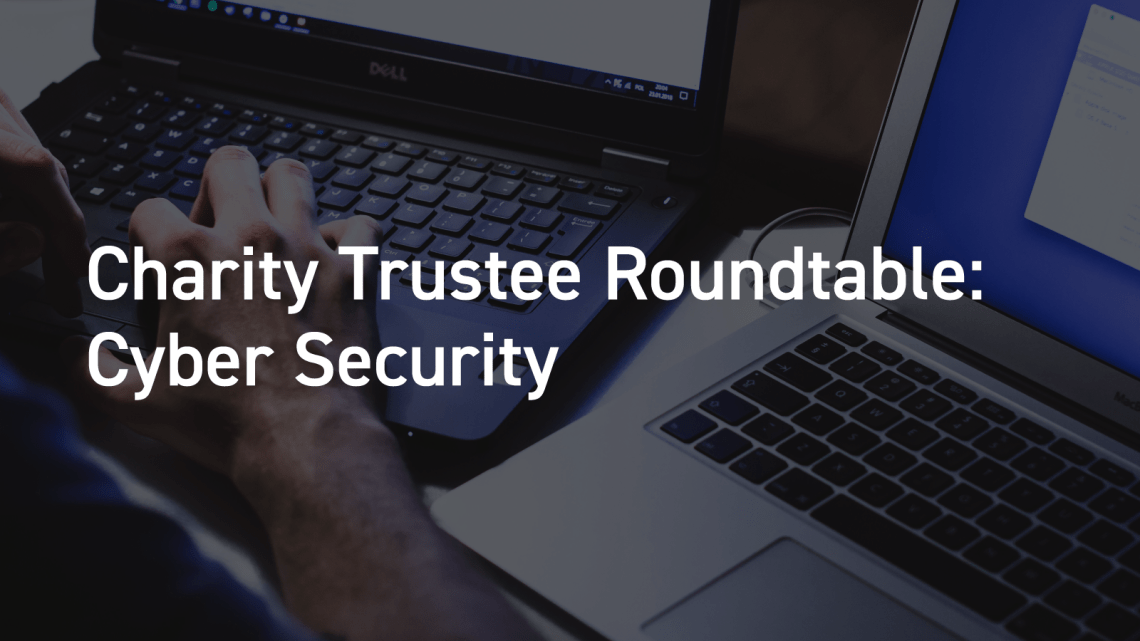
At our first Charity Trustee Roundtable for 2025, we were joined by Paul Chichester, Director of Operations at the National Cyber Security Centre who shared his insights. The key points discussed during the session were as follows:
National Cyber Security Centre (NCSC) Overview:
The NCSC was established in 2016, during a period of political optimism in the UK with a majority government focused on growth and prosperity. Cybersecurity was seen not only as a national security concern but also a means to protect businesses, citizens, and foster economic prosperity. The government recognised the importance of cybersecurity for national safety and as an economic sector, particularly as the UK has a growing cybersecurity industry.
Prior to the NCSC, there was no centralised body offering cybersecurity advice outside of government. The NCSC was set up to fill this gap, providing a one-stop shop for advice, guidance, and support for everyone—from government to the public. Its mission is to make the UK the safest place to live and work online. The NCSC focuses on areas such as critical infrastructure (e.g., power stations, water systems), businesses, SMEs, academia, charities, and individual citizens.
Key NCSC Responsibilities:
The NCSC manages national cybersecurity incidents, such as ransomware attacks or spear-phishing, and provides guidance for organisations experiencing cyberattacks. It acts as a central hub for reporting incidents, helping manage and mitigate attacks. The charity sector, in particular, faces a range of cyber threats, including ransomware and data breaches, often due to their access to financial resources and personal data.
Common Cybersecurity Threats:
Cybersecurity Challenges for Charities:
Charities are frequent targets due to their access to funds and personal data. Criminals and state actors often exploit these vulnerabilities for financial gain or intelligence gathering. Ransomware remains a persistent issue, and preparation is crucial. Organisations are advised to implement cybersecurity measures and prepare for potential attacks, as prevention is cheaper and more effective than reacting to an incident.
Cybersecurity Preparedness:
Key Actions for Organisations:
Cybersecurity Best Practices:
NCSC’s Role Beyond Direct Support:
The NCSC works with international partners and vendors to improve the security of the technology we use. Through initiatives like “Secured by Design,” the NCSC aims to set security standards for consumer technology and address market incentives. This includes efforts to ensure that Internet of Things (IoT) devices, such as smart home products, meet basic security standards like having non-default passwords and automatic updates.
Growing Cyber Talent:
The NCSC is actively working to grow the UK’s cybersecurity talent pipeline through initiatives like CyberFirst, which aims to develop a more diverse and skilled workforce from primary school through university.
Top Actions for Boards:
[1] https://www.ncsc.gov.uk/section/exercise-in-a-box/overview
Our next Charity Trustee roundtable will be taking place at 9am on Wednesday 11 June 2025 where we will be joined by David Holdsworth, Chief Executive of the Charity Commission. Contact Louise Hughes: lhughes@hwfisher.co.uk to reserve your place.
We’d love to hear from you. To book an appointment or to find out more about our services: